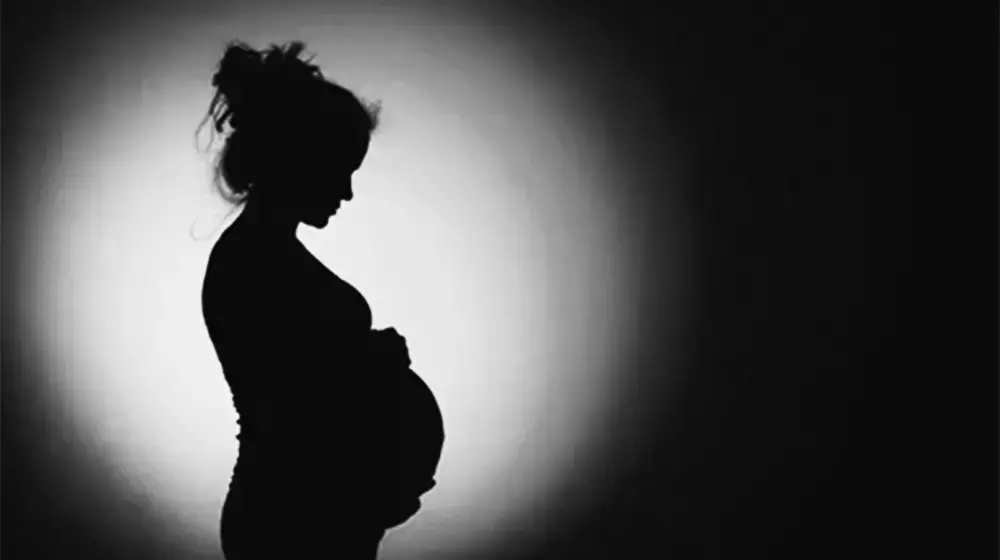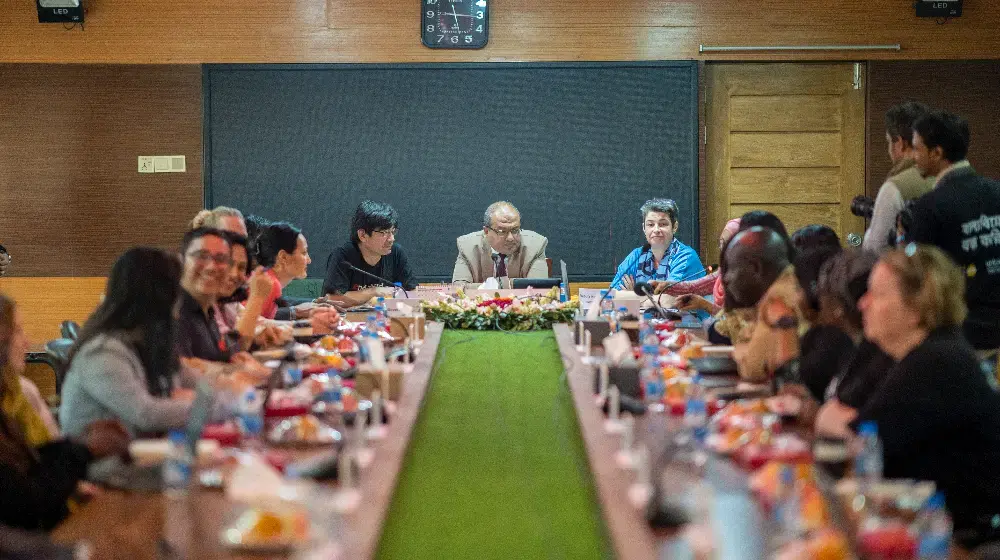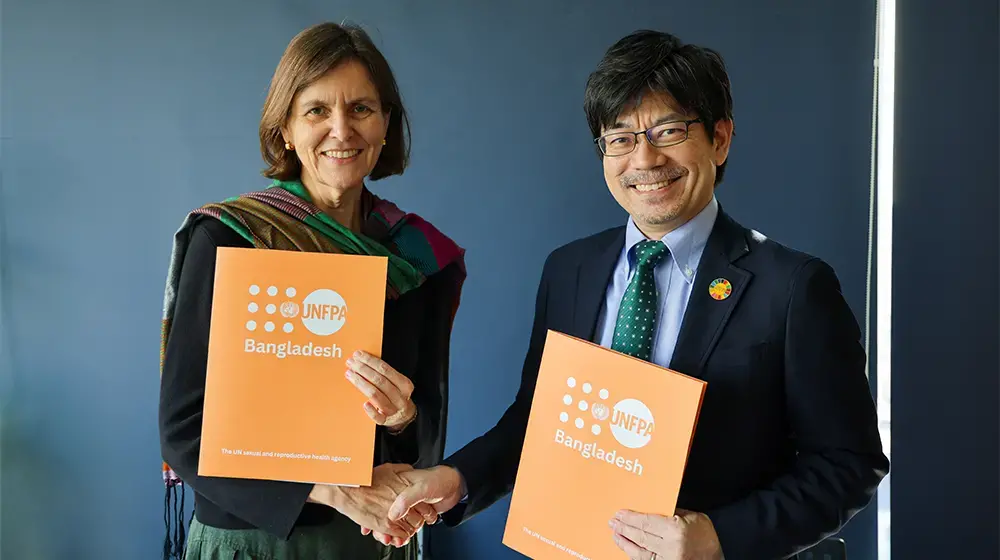On August 25, 2017, and in the days, weeks and months that followed, violence in Myanmar's long-troubled Rakhine State triggered an exodus of Rohingya people to Cox's Bazar District in neighbouring Bangladesh.
Since then, some 700,000 women, men and children have fled their homeland, the majority in the first six weeks alone, adding to the 200,000 Rohingya refugees already in Bangladesh from previous years.
More than half of the refugees are women and girls. UNFPA Bangladesh has been providing lifesaving support, with the generous support of donor governments and in close collaboration with Bangladeshi authorities and the host communities of Cox's Bazar.

Image: UNFPA Bangladesh/Naymuzzaman Prince
Our humanitarian interventions closely parallel the Three Transformative Results embedded in our global Strategic Plan: Zero maternal deaths, zero unmet need for family planning and zero gender-based violence and other harmful practices against women and girls, including child marriage.
Accordingly, we provide services aimed at ensuring safer pregnancy and childbirth; preventing and responding to gender-based violence; assisting women to avail of contraception and other family planning services so they can choose if and when to have children; addressing child marriage and the trafficking of young girls; and working with young persons on life skills to provide comprehensive sexuality education, inculcate gender equality and a respect for diversity and inclusion, and address the roots of violence against women at a young age.
Here's a look at some of our key interventions over the past year - as well as the work that lies ahead in this protracted crisis which, for now, has no end in sight.
One Year On: UNFPA's Response to the Rohingya Crisis in Bangladesh

From #DignityFirst to #SafeBirthEvenHere, an overview of what we've been doing in the sprawling refugee camps of Cox's Bazar:
http://bangladesh.unfpa.org/en/news/one-year-unfpas-response-rohingya-crisis-bangladesh
#DignityFirst: Kits for Rohingya women and girls
Our trademark Dignity Kits are a staple of UNFPA's humanitarian response in Cox's Bazar and the world over - and are particularly important in the initial phases of a crisis. Here's a peek into what they contain - explaining how seemingly simple items can make such a huge difference to women and girls in need.
Video: UNFPA Bangladesh/Lauren Anders Brown @LABCollaborate
They call our safe spaces "shanti khana"
UNFPA's Women Friendly Spaces are a genuine safe haven for women and girls impacted by humanitarian crises - and the Rohingya refugee crisis is no exception. As of August 2018, we've established 20 of these centres across the camps of Cox's Bazar. They provide a range of services, from health information and medical referrals to psychosocial counselling for traumatised survivors of gender-based violence and other atrocities. Rohingya refugees call these spaces "shanti khana" - "homes of peace."
Come, enter into a "shanti khana" whose simple environment belies the profound transformation that can occur within.
Video: UNFPA Bangladesh/Lauren Anders Brown @LABCollaborate
Four women, four stories: Safe spaces allow Rohingya refugees to rebuild their lives
Image: UNFPA Bangladesh/Allison Joyce
For every Rohingya woman who shares her story of horror, there are many more who still suffer in silence. Our Women Friendly Spaces not only offer refugees a chance to heal, they often help transform women into community volunteers who, in turn, help transform their peers. Here are four amazing stories that symbolize the resilience of the human spirit, surmounting adversity and inspiring others in the process.
Bangladeshi midwives save lives in the Rohingya camps of Cox's Bazar
Image: UNFPA Bangladesh/Allison Joyce
Midwives save lives. It's that simple. Their role is all the more vital amid a humanitarian crisis. As of August 2018, UNFPA has 100 midwives deployed in the Rohingya refugee camps, supporting the thousands of pregnant women there. The dramatic story of Salima Khatum, and the work that midwife Tania Akter does, are truly inspiring.
Show Rohingya women that we care: Our Goodwill Ambassador Ashley Judd visits Cox's Bazar, and issues a plea
UNFPA Global Goodwill Ambassador Ashley Judd, the noted Hollywood actress and women's rights activist, visited the Rohingya refugee camps in early 2018, to witness our response to the crisis, including safe pregnancy and childbirth services, and psychosocial counselling for traumatised women.
Shaken and inspired by the experience, including an encounter with Ajida, a Rohingya refugee who was heavily pregnant and who had lost four of her eight children during the journey from Myanmar, Judd wrote a special blog for CNN.com and gave an in-depth interview to CNN International in which she appealed to the world to support humanitarian efforts for the refugees.
UNFPA/Lauren Anders Brown @LABCollaborate video: Ashley Judd/Rohingya appeal: www.unfpa.org/Rohingya
"While I held her hands at a maternity clinic, Ajida looked limply at the confusing identify card that says she is from a country that denies her existence and is actively engaging in what has widely been described as the ethnic cleansing of her people. She explained to me that her baby hasn't moved in months and that she has a terrible burning sensation in her chest."
https://edition.cnn.com/2018/03/15/opinions/rohingya-women-ashley-judd-opinion/index.html
Health facilities, safe spaces reinforced as monsoon rains threaten Rohingya refugees
Well before the 2018 monsoon season approached, Bangladeshi authorities began working with UN agencies and civil society organisations - as well as Rohingya refugees themselves - to prepare the camps as best as possible for lashing rains and potential cyclones.
UNFPA Bangladesh Representative Asa Torkelsson and Gender Programme Coordinator Fathema Sultana visit the camps to gauge monsoon preparedness / Image: Allison Joyce
In July, UN Secretary-General Antonio Guterres and the World Bank President Jim Kim visited Cox's Bazar, accompanied by UNFPA Executive Director Natalia Kanem and UNHCR Chief Filippo Grandi, to witness the UN response to the Rohingya crisis, and to pledge a new World Bank-funded package to help sustain the response on multiple fronts, including the health needs of women and girls.
Image: UNFPA Bangladesh/Allison Joyce
“The safety of the Rohingya refugees during this monsoon season is priority one,” said UN Secretary-General Antonio Guterres after visiting refugee services, including UNFPA facilities, amid a downpour. “As many as 200,000 need to be relocated. We cannot allow the monsoons to wash away the hopes of the Rohingya refugees I met today.”
The July visit was Natalia Kanem's second mission to Cox's Bazar in as many months. It reinforced the strong impressions formed after her first visit, when she spent time with UFNPA's field workers as well as the women and girls that they serve, in Women Friendly Spaces and health facilities.
Reaching host communities as well as refugees is a priority for UNFPA and partners
The humanitarian response in Cox's Bazar is not only shared by Bangladeshi authorities, UN partners and NGOs, but also by ordinary citizens - the host communities who have so generously taken in wave after wave of Rohnigya refugees over the years. Cox's Bazar has long been an impoverished region of Bangladesh, and the Rohingya refugee crisis has added to that challenge.
Reaching host communities with support is an important component of the overall Rohingya refugee response. UNFPA doctors and midwives based at health facilities in the camps or at hospitals in Cox's Bazar city itself provide support to whoever needs it, thereby integrating services for refugees and host communities, and contributing to a shared sense of purpose.
Supported by safe spaces, Rohingya refugees show off their creativity on International Youth Day
For the hundreds of thousands of children and young persons among the almost 1 million Rohingya refugees in Cox's Bazar, the future is clouded with uncertainty. The vast majority cannot access regular education, and as they move from childhood to adolescence and on to adulthood, livelihood opportunities are minimal, if at all they exist.
Despite the challenges, UNFPA and partners are working with young people to build life skills in innovative ways, using an international module adapted specially for the Rohingya refugee context. As well, opportunities are being created for youth to display their skills and talents whenever possible. International Youth Day 2018 was one such occasion.

Image: UNFPA Bangladesh/Carly Learson
“The young people here are being taught about respecting rights and respecting personal space, which is fantastic. But what’s so encouraging is that they are then going out into their own communities and teaching other young people, as well as adults, that they should be respectful too.” - UN Youth Envoy Jayathma Wickramanayake, after visiting UNFPA youth projects in Cox's Bazar.
A "Thank You" photo-essay for our donors and supporters
Our work in Cox's Bazar, as with any humanitarian response, would not be possible without the support of donor governments whose funding is crucial. Here is a heartfelt thanks to all donor governments and their citizens for the trust they have placed in us. UNFPA was there for women and girls when the Rohingya refugee crisis began – and we’ll be there for as long as we’re needed. That’s our pledge.
https://spark.adobe.com/page/v9Fu9iL3jpYSY/
For more information on UNFPA's response to the Rohingya refugee crisis, please contact:
Asma Akter, UNFPA Bangladesh, Dhaka: asma@unfpa.org / +880 17 1167 3555
Carly Learson, UNFPA Cox's Bazar Sub-Office: learson@unfpa.org / +880 17 4206 0112
Roy Wadia, UNFPA Asia-Pacific, Bangkok: wadia@unfpa.org / +66 848 752 634




